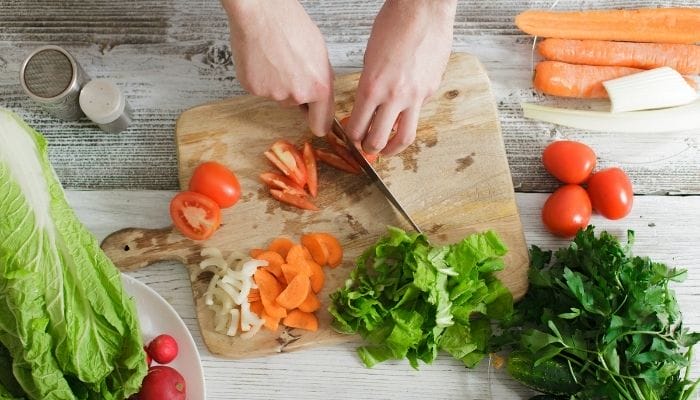If you consider yourself a so-so chef but are eager to reach a greater level of professionalism, there are plenty of easy ways to improve your culinary skills. Cooking is a combination of art, science, and tradition, and you can only become better at it by educating yourself in proper technique and taste.
Sometimes, you can learn a lot simply by reading a book, while other times require interaction with an instructor as well as a longer period of experimentation. No matter what, the more you learn, the better you get, and the better your meals will taste!
The Right Tools for the Job
Any craftsperson is only as good as their tools. Shoddy tools mean shoddy results, no matter how well you know your stuff.
If you want to see any immediate improvement in your cooking, take the plunge and invest in some fine culinary equipment. You don’t need to fully outfit your kitchen, so it looks like a Cordon Bleu chef’s workspace. Just pick up a few finer pieces that help produce better, faster, and cleaner results.
Get a high-grade chef’s knife and a sharpening rod, a large wooden cutting board, a cast-iron pan, a set of spatulas, and a nice set of cookware. As you improve, expand your collection of tools—but when starting out, these items go a long way.
Learn Firsthand When You Can
Learn from those who know their stuff. Consult with family or friends with extensive cooking experience whenever you can. Online cooking courses are easy ways to improve your culinary skills, as are adult education classes. If you have a favorite restaurant, it doesn’t hurt to ask if the chef offers classes in preparing their cuisine.
Planning Means Perfection
As mentioned, cooking can be both an art and science, and as such, it never hurts to plan a meal before throwing yourself into preparing it.
Study a new recipe and ask and look around for suggestions on enhancing it, online and off. Measure out the ingredients beforehand rather than scooping them up and throwing them together along the way. Note temperatures and keep track of them with thermometers and oven settings. Plan your “attack” and take your time, no matter what.
Be a Person for All Seasons
Take the time to acquaint yourself with spices and seasonings before you throw them into the pot.
Understand that salt is not a panacea, and be cautious in using it to add flavor while not being timid about using it. Acquaint yourself with how individual spices taste and how they react to temperature, dilution, and interact with other food. You’ll soon be able to predict how a dish will taste before you even cook it!







